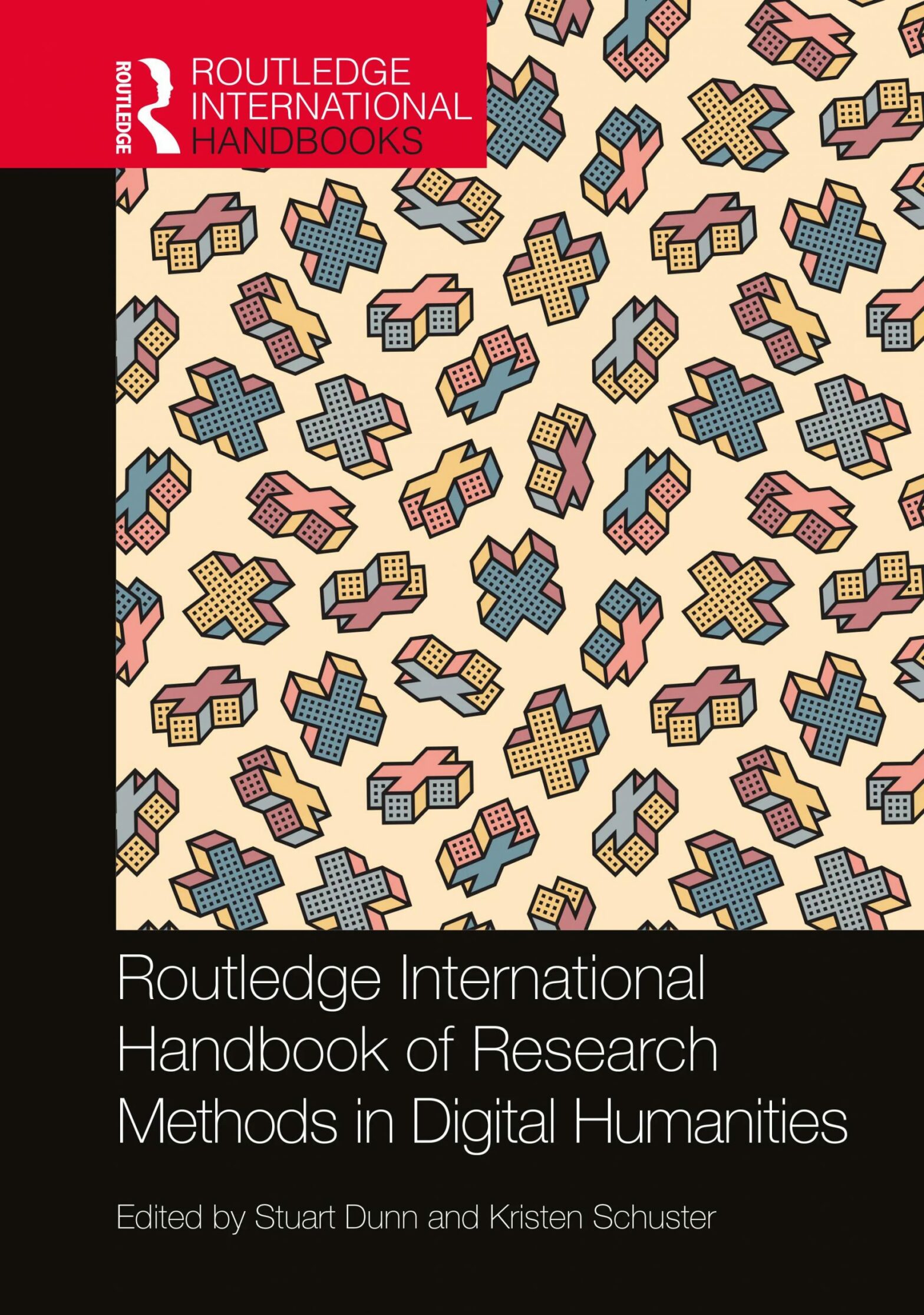The following post is from Stuart Dunn, Senior Lecturer and Head of the Department of Digital Humanities, King’s College London.
The Routledge International Handbook of Research Methods in Digital Humanities, edited by Kristen Schuster and Stuart Dunn, will be published shortly. Like many such volumes, this has matured in to being over time, and our own picture of what the volume is about, and what it should be for, has evolved as we have read and reviewed the 27 chapters of cutting-edge thinking. These represent many of the varied corners of scholarship that feed in to Digital Humanities, and we hope it will similarly help a broader constituency of the field’s scholars re-evaluate their theory and practice, and how they go about it.
We have co-authored an introduction of some 5000 words, in which we set out our own view what DH methodology is and what it is for. We plan to post this online under Routledge’s Green Open Access rules (of which more below) in due course, so we will not go into any detail on this aspect here. We are, however, very excited by the way the volume has shaped up. The emphasis we have tried to establish on what DH *does*, as opposed to (yet another) discussion of what it *is*. In particular, we feel a thread runs through chapters which makes connections between long-established DH debates and newly emerging ones. We see this as a key aim of the volume.
There has been much discussion recently about the place of method in DH. Most recently for example, is a renewed discussion of the dichotomy between quantitative and qualitative methods, highlighted in a link posted recently to the Humanist discussion list by Marinella Testori. This is certainly a key debate, but it’s only one of several. It is important to note in this regard that although we are both academics of the Department of Digital Humanities at King’s College London, and the volume does indeed contain contributions from current and former Departmental colleagues of ours, this book does not in any way reflect a “King’s” view of the field – if such a thing even exists (one of us has blogged on this recently). Rather, we have tried very hard to step outside our immediate institutional context and provide a bottom-up evaluation of the latest methodological developments in the field.
The volume comprises of three sections, Computation and Connection; Convergence and Collaboration, and Remediation and Transmission. All three sections acknowledge that DH – both its subjects and its methods – exist in a world that is connected in new ways. We have tried to imagine these new kinds of connectivity and consider why they are important. This is a challenge all our authors have risen to magnificently. Under these headings, various sub-themes are explored, some of which have perhaps not had the profile in DH methods discussions that they should have. We are excited, for example, to have been able to include a three-chapter section on critical pedagogies in DH, a subject which will be essential as the 2020/21 academic year starts with much teaching online, and/or socially distanced, due to Covid-19. The same, of course, can be said for collaborative research, and the virtualization of most academic meetings and conferences. By establishing what is methodologically necessary for doing DH in a connected world, we can surely equip it better to weather storms like Covid, as well as to improve and evolve incrementally, as network technologies evolve.
As noted, our own introduction will be posted in preprint form under Green Open Access in due course. Of course, whether individual authors follow suit or not will be up to them and will depend on a range of factors including requirements to deposit manuscripts with institutional repositories; tenure and promotion considerations and the norms of their “home” research domains. However, we hope that as many unprocessed drafts as possible will be available via this protocol.
This leads us to comment on the way we have attempted to address inclusivity and diversity in the volume. All chapters were contributed by invitation. Some authors were identified through our own networks and knowledge of the field, others through the process of “snowballing” where authors already on board made recommendations to fill the gaps that emerged as the Table of Contents grew. In all cases, we have prioritized the excellence of the work involved – there has been no conscious attempt to socially engineer the author pool. We are, however, very proud of the fact that many of the contributors are early career researchers, although these are blended with more established voices as well. We are also proud of the fact that well over half of the contributors use she/her pronouns. We acknowledge that there could be more representation from the Global South and non-Anglophone worlds. However the volume nonetheless contains a great deal of critical self-reflection of Anglophone/Western DH (some of it quite hard-hitting) which we hope will enable such inclusive conversations going forward – starting with a recognition that “inclusivity” isn’t simply the admission of a particular group to a particular territory; but rather an equal intercultural conversation. We have tried to start such a conversation between the many different cultures of DH, and hope that it will expand in that spirit.

